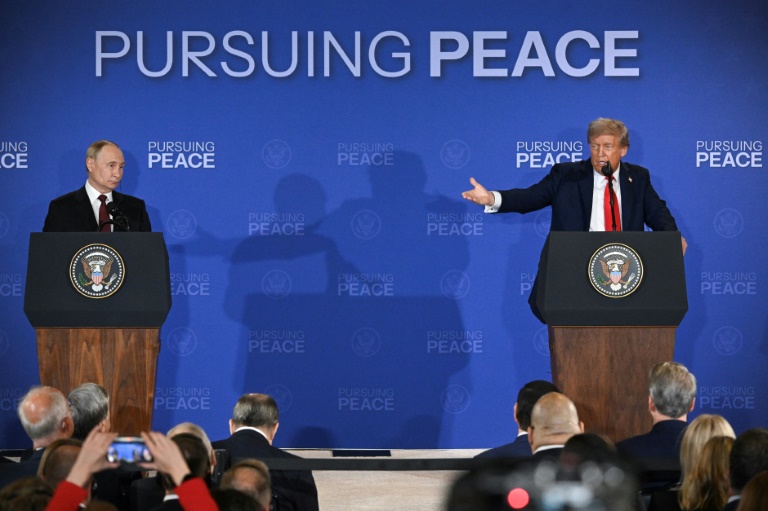European leaders are responding to the recent summit between Russian President Vladimir Putin and US President Donald Trump, where no significant deal was reached concerning Ukraine. This outcome has provided European leaders with a chance to assert their presence in a critical geopolitical moment, as they seek to maintain a role in shaping the future of the region. According to Alberto Alemanno, a law professor at HEC Paris, the lack of a deal is beneficial for both Ukraine and Europe. He emphasized the danger of a new European security framework being established without their input.
Leading up to the summit held in Alaska, European nations scrambled to engage with each other, attempting to influence discussions through urgent meetings and calls. In a significant development, the French presidency announced that the leaders of Britain, France, and Germany would host a video conference on Sunday to discuss strategies for peace in Ukraine. This meeting is set to occur just a day before Ukrainian President Volodymyr Zelensky visits Washington for talks with Trump, following a previously contentious meeting that left Zelensky facing public criticism.
European leaders also proposed a trilateral summit involving Zelensky, Putin, and Trump. However, given Russia’s ongoing tensions with the European bloc and the imposition of 18 rounds of sanctions since its invasion of Ukraine in February 2022, the likelihood of such a meeting remains slim. On Friday, Putin made his position clear, warning Ukraine and European nations against creating “obstacles” or attempting to disrupt the “emerging progress” through provocations.
Analysts are noting the implications of the summit’s outcome. James Nixey, an expert in Russian foreign policy, remarked, “Clearly, what Vladimir Putin’s intention is, is to keep Europeans out and Americans in.” Following debriefings with Trump and Zelensky, European leaders convened a video call to outline their next steps. They collectively asserted that Moscow “cannot have a veto” over Ukraine’s aspirations to join the European Union or NATO. This statement was signed by leaders including Emmanuel Macron, Friedrich Merz, Keir Starmer, and Ursula von der Leyen.
Macron emphasized the necessity of maintaining pressure on Russia until a “solid and durable peace” is achieved. Yet, Alemanno pointed out that European leaders have largely avoided engagement with Putin throughout the conflict, leaving them now uncertain about how to proceed. “They are a bit stuck,” he noted, highlighting the complexity of the situation.
The stakes are elevated further by Trump’s recent signals indicating a willingness to withdraw from the conflict, despite his previous campaign commitment to resolve it swiftly. Danish Prime Minister Mette Frederiksen expressed a sense of urgency, stating, “Each morning when I wake up, my first thought is that we have to re-arm ourselves even faster.”
As European leaders navigate these turbulent waters, their ability to influence the outcome of the conflict in Ukraine remains uncertain. The need for a cohesive strategy that includes European voices is critical for any future peace efforts.
